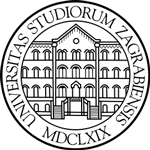FMPM: Futuristic Mobility Prediction Model for Mobile Adhoc Networks Using Auto-Regressive Integrated Moving Average
Abstract
The mobility of the node plays a crucial role in route discovery process for Mobile Ad hoc networks (MANET). Typically, the high-speed node affects the routing process in terms of packet relay, packet delivery. In this paper, we propose a mobility prediction model FMPM using Auto-Regressive Integrated Moving Average (ARIMA) method for estimating futuristic speed values of the nodes in MANET. The ARIMA is a time series forecasting approach using autocorrelations of the data. The ARIMA model applied to mobile nodes for predicting its future speeds in the network. This prediction supports the route discovery process for selection of moderate mobility nodes, which provides the reliable routing with the nodes. The nodes are trained by ARIMA model using neural network time-series tool of Matlab. Roughly, each node trained about 10 iterations. Simulation results show that the forecasted values almost match with the simulated node speed values. Performance analysis of the predicted mobility values exhibits the enhancement of current methodology compared to other works in terms of performance metrics such as mean square error, covariance, and computation overhead. FMPM yields more perfection in the speed prediction of a mobile node with a maximum of 80-100 % throughout the time series.

This work is licensed under a Creative Commons Attribution-NonCommercial-NoDerivatives 4.0 International License.






